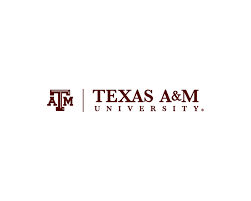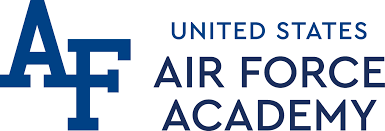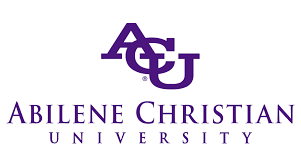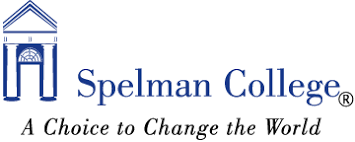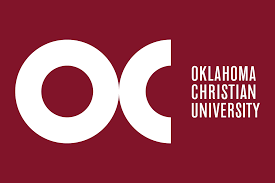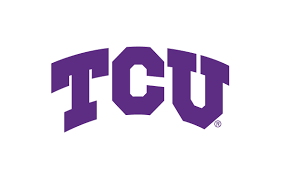College Counseling
WCS prepares students to be lifelong learners, compassionate leaders, Christian servants, and Christ followers. With 100% graduating and 100% college acceptance, our Wildcats are ready to take on the next chapter of their lives. College Counseling helps students discover their interests, and talents, and encourages academic, social, emotional, and spiritual growth.
Our Guidance Office makes the college search and application process manageable and personalized to your student.
Student Resources
- 9th Grade College Prep Checklist
- 10th Grade College Prep Checklist
- 11th Grade College Prep Checklist
- College Application Timeline and Checklist
- Let’s Talk Scholarships
- Tips for Requesting Letters of Recommendation
- College application roadmap
- A checklist for Juniors
- Tomorrow Ready Texas Information Kit
- College Essay Workshop Resources
To request transcripts and/or records, please contact the Registrar Office at
[email protected]
* WCS offers a Learning Center for additional support for students who qualify for accommodations based upon the diagnosis of certain learning differences and recommendations by a licensed diagnostician. A current psychological educational evaluation is required. Contact the WCS Admissions Office for more information.
Updates/Reminders, College Rep Visits and Event Information
Students looking for community service opportunities should check the Outreach page of the Spiritial Life section of the web site for details, deadlines, etc. on current options.
On-Campus College/Organization Rep Visits
Watch this space to see which colleges, universities and other career planning-related organizations will be visiting WCS. Campus visits usually take place in the cafeteria area during high school lunch, between 12:20-12:55 p.m. or during SACT.
Off-Campus College Events
Watch this space for details on college and university events and visit weekends for prospective students.
November 7, 2024 – University of Houston visit (Juniors only) 10:00AM
November 20, 2024 – Houston Christian University (Juniors only)
College Application Process & Timeline
Freshman and Sophomore Years:
Make sure your classes are in line with college goals. Work with your school counselor to develop a four-year high school plan.
Consider Advanced Placement (AP) or Pre-AP/Honors courses.
Get involved in extracurricular activities. Remember that colleges would rather see real involvement in one activity instead of a loose connection to several.
Educate yourself about college costs and financial aid options.
Read as much as possible throughout the year.
Begin thinking about your life after school, including the types of jobs that might interest you. Identify your interests – likes and dislikes – not just in classes but in every area. Make lists of your abilities, social/cultural preferences and personal qualities. List things you may want to study and do in college. Talk to other people, such as your school counselor, teachers, recent college graduates who are working, and professionals in the community about careers you might find interesting.
Tour college campuses – large, small, public, and private. Begin locally – UH, HBU, TSU, Rice University, University of St. Thomas.
Attend college and career fairs.
Begin researching 30-40 colleges and universities that interest you to force yourself away from your comfort zone.
Begin keeping notes on college information in one notebook.
Study – keeping up with your grades is important.
Explore summer opportunities. Look for a job, internship or volunteer position that will help you learn about a field of interest.
Junior Year:
Summer – Continue to explore career interests and goals.
August –
- Make a file to manage your college search, testing and application data.
- Continue to update information in your college notebook.
- Consider test preparation for ACT and SAT.
- Ensure you are on track with high school graduation requirements – WCS follows the Recommended Diploma Program set forth by the TEA (https://ritter.tea.state.tx.us/rules/tac/chapter074/ch074f.html; https://ritter.tea.state.tx.us/rules/tac/chapter074/ch074g.html).
- Create a master list or calendar of test dates (best times to take the ACT and/or SAT are spring of Junior year and end of Junior year or beginning of Senior year), fees, and registration deadlines.
September/October – Meet with college representatives when they visit WCS; attend recommended college fairs in Houston and browse college websites.
October – Take the PSAT/NMSQT.
November/December – Register to take the ACT and/or SAT in the spring.
March – Register to take AP exams if enrolled in AP courses.
Senior Year:
During the year –
Visit college campuses. School days are best, but weekends and summers are better than no visit at all. For absences for college visits to be excused, the student must have previously obtained written permission from the Upper School Principal prior to missing school and must provide documentation, on college letterhead or a pre-printed form, from the college verifying that a campus visit occurred on the date that was requested and approved for a college visit. (page 26 of the Student Handbook)
By senior year, narrow down your list of colleges to about six total – two dream or reach schools, two target schools (where your academic profile and test scores match those of current freshmen), and two solid or safety schools. Note: Many universities publish GPA, SAT and ACT data for each new freshman class on their website. This kind of information helps prospective students get a better idea of the kind of score they need to be admitted to the university.
Begin a dialogue with an admissions counselor at the universities to which you choose to apply.
It is the responsibility of each family to research the colleges and universities for their deadlines.
June-August –
- Visit (or at least begin planning visits to) college campuses and meet with admission officers.
- Register with the NCAA Clearinghouse (www.ncaaclearinghouse.org) if you plan to play sports at a Division I or II school.
- Begin thinking about essays and other requirements for college applications.
- Begin a checklist of requirements, fees and deadlines for college applications, financial aid forms and deadlines, test dates, and other key information.
August –
Create a master list or calendar of:
- test dates (best times to take the ACT and/or SAT are spring of Junior year and end of Junior year or beginning of Senior year), fees, and registration deadlines
- college application due dates
- required financial aid application forms and their deadlines (aid applications may be due before college applications)
- recommendations
- transcripts
Begin the application process; request transcripts through the registrar’s office.
Register to take the ACT and/or SAT and have your score reports sent to colleges.
Get recommendation letters from teachers.
September – Continue to meet with college representatives when they visit WCS and attend local college fairs.
October – Complete the CSS/Financial Aid PROFILE, if it is required by any of your selected colleges.
November –
- Sign up for a Personal Identification Number (PIN) at www.pin.ed.gov for the Free Application for Federal Student Aid (FAFSA).
- Complete your application essays, and be sure to proofread for mistakes.
- Be sure not to miss early decision deadlines, many of which are in November.
December –
- Gather the data needed for the FAFSA.
- Finish all college applications before winter break.
January –
- Complete and submit the FAFSA as soon as possible after January 1.
- Request mid-year transcripts through the registrar’s office.
February – No senioritis! Accepting colleges really do look at second-semester senior grades.
March –
- Register to take AP exams if enrolled in AP classes.
- Some admissions decisions arrive this month. Carefully read everything you receive, as some of it may require action on your part.
April –
- Most admissions decisions arrive this month. Carefully read everything you receive, as some of it may require action on your part.
- Compare financial aid award letters from colleges to which you’ve been accepted.
- Decide which college to attend, accept any aid offers, and mail a deposit check by May 1.
May –
- Request through the registrar’s office a final transcript to your college choice . If you plan on competing in Division I or II sports, request through the registrar’s office a final transcript to the NCAA Initial Eligibility Clearinghouse.
- Check to see that any final paperwork has been completed, such as registering for orientation or housing.
The following are the student’s responsibility:
1. Teacher recommendations
2. Adherence to application deadlines specific to each university to which they are applying
3. Sending ACT and/or SAT test scores
4. Supplemental essays
5. Scholarship applications
6. Residence room applications and enrollment deposits (due May 1)
Visit www.commonapp.org to apply to about 500 private universities.
Visit www.applytexas.org to apply to all Texas public universities.
Factors in the college admission decision – ranked in order of importance:
1. Grades in college-prep courses/core subjects
2. Strength of curriculum
3. Admission test scores (SAT, ACT)
4. Grades in all courses
5. Essay or writing sample
6. Counselor recommendation
7. Class rank
8. Teacher recommendation
9. Other (portfolio, interview, extracurricular activities, work, etc.)
College Testing (ACT, SAT, AP, CLEP)
The ACT and the SAT are the two major standardized tests used by admissions committees to evaluate undergraduate applicants. All colleges and universities accept both tests interchangeably, so students are free to choose which of the two to take. Students should take one or the other in the winter or spring of junior year and/or fall of senior year. Know your college deadlines.
What is the difference between the ACT and the SAT?
| New SAT | ACT | |
| Good to know | All of your scores will be reported to colleges. | You can take it more than once and choose which scores get sent to colleges. |
| Focus | An aptitude test designed to measure a student’s general analytical abilities and problem-solving skills | An achievement test designed to measure what a student has learned |
| How it is scored | Composite score (400-1600); 2 section scores (200-800) | 1 score (1 to 36) on each test (English, math, reading and science) and a composite ACT score, which is an average of these 4 tests |
| Time allowed | 3 hours (without essay); 3 hours, 50 minutes (with optional essay) | 3 hours 25 minutes |
| Format | 2 section exam: 1 math section and 1 evidence-based reading and writing section. | 4 content areas: English, math, reading, science, and writing (optional). An optional experimental section is added to the exam only on certain dates and is clearly marked. |
| Content | Reading and Writing: multiple-meaning words; informational graphics (charts); complex structure/vocabulary; passage-based grammar, including punctuation Math: application-based, multi-step questions; higher-level math, including trigonometry; “extended-thinking” grid-in question; core math competencies (translating math into English and English into math); deep understanding of theories behind mathematical principles, such as building equations | Math: algebra I and II, geometry, statistics, and trigonometry Reading: four passages, one each of prose fiction, social sciences, humanities, and natural sciences English: stresses grammar Writing: optional essay Science: charts, graphs, data, earth science, physics, chemistry, biology |
| Is there a penalty for a wrong answer? | No | No |
Use the WCS High School Code 443459 when registering for the ACT and/or SAT.
It is the students’ responsibility to submit ACT and/or SAT test scores.
ACT submits singular sittings to colleges and universities; SAT submits cumulative scores from all sittings.
NOTE: Many colleges and universities superscore, meaning they will take the highest test score in certain categories from different sittings.
ACT
To register for the ACT, visit www.actstudent.org/start.
Details:
- Based on high school curriculum.
- Accepted by all four-year colleges and universities in the U.S.
- Access to free and affordable test preparation materials.
- Send up to four score reports free by listing those colleges when you register.
- Scores are normally reported 2-8 weeks after you test (5-8 weeks for the ACT Plus Writing). Get your score report through your ACT web account.
- For information about test accommodations for students with disabilities, eligibility, and testing options, visit the ACT website before registering online.
- After registration and for a fee, you may change test date, test option, test center, and college reports.
- Visit the ACT website to find ACT’s calculator policy and a detailed checklist of what to bring to the test center, what not to bring, and requirements for admission.
- Writing Test is optional. Check the ACT website to see if the colleges you are considering require or recommend the ACT Writing Test.
- There are testing fees for the ACT (No Writing) and the ACT Plus Writing.
SAT
Learn more, register, and get free practice at www.sat.org.
To register for the SAT, visit www.sat.org/register.
There are testing fees for the SAT (No Writing) and the SAT Plus Writing.
AP
WCS is an open-enrollment AP class school. Research tells us that students who take AP courses and exams are more likely than their peers to complete a bachelor’s degree in four years or less.
CLEP (College-Level Examination Program)
800-257-9558
CLEP offers 34 exams covering courses in the disciplines of business, composition and literature, foreign languages, history and social sciences, and science and mathematics.
CLEP exams require college-level knowledge and critical-thinking ability; sufficient preparation is required to do well.
CLEP exams are administered on computer.
The exams are timed. All are approximately 90 minutes.
Most questions are multiple choice, but some exams include essay questions.
All exams are scored on a scale of 20 to 80.
Financial Aid and Scholarship Information
Financial aid is need-based; most scholarships are asset or merit-based. Most aid students receive is institutionally based.
To be eligible to receive federal student aid, you must:
- Be a citizen or eligible noncitizen of the U.S.
- Have a valid social security number
- Have a high school diploma or GED
- Be enrolled in an eligible program as a regular student seeking a degree or certificate
- Maintain satisfactory academic progress
- Not owe a refund on a federal student grant or be in default on a federal student loan
- Register (or already be registered) with Selective Service, if you are a male and not currently on active duty in the U.S. Armed Forces
- Not have a conviction for the possession or sale of illegal drugs for an offense that occurred while you were receiving federal student aid
Regardless of income, all families should complete the FAFSA (Free Application for Federal Student Aid) annually. Students are required to complete the online FAFSA application in order to qualify for federal and/or institutional aid. This application will require your tax and income information from the previous year. Applications should be completed as soon as parents receive their W-2s, but students can go online to complete most of the application before W-2s arrive.
Students and their parents can get started early by requesting their FAFSA PIN. The FASFA PIN is the code that the U.S. Department of Education uses to identify you online.
Complete the FAFSA at no earlier than but as soon as possible after January 1 for the upcoming calendar year.
Receive an early estimate of what types of federal aid you might qualify for by using the FAFSA Forecaster
A few weeks after completing the FAFSA, you’ll receive your Student Aid Report (SAR). This report includes your Expected Family Contribution (EFC), how much the government believes you and your family should contribute toward your education).
Next you’ll receive award letters from the schools to which you’ve applied. The award letter outlines how much financial aid you qualify for, including grants, scholarship, work-study programs, and federal loans.
Free Aid
- Scholarships – research online
- Pell Grant – The Federal Pell Grant Program provides need-based grants to low-income undergraduate and certain post-baccalaureate students to promote access to post-secondary education. Grant money is not required to be repaid.
- State aid – To be considered for state-based aid, you should consider attending an in-state college.
- Institutional aid – Many colleges and universities, both public and private, provide grants or scholarships to students to help them pay for all or part of the tuition and fees charged by the institution.
Some colleges offer free tuition for qualified applicants. The college planning experts at TheBestColleges.org have assembled a list — and how to apply.
Self-help
- Federal Work-Study Program
- Tuition payment plan
Loan Information
Always borrow federal first. Federal student loans are cheaper, more available and have better repayment terms than private student loans.
First-choice student loans:
Federal Perkins Loan – For undergrad (loan amount up to $5,500) and grad/professional students (loan amount up to $8,000). College is the lender.
Federal Direct Stafford Loan
- Direct Subsidized Stafford Loan – For undergrad students enrolled at least half-time. Loan amount between $3,500 and $5,500, depending on school. No interest charged while in school. Department of Education is the lender.
- Direct Unsubsidized Stafford Loan – For undergrad and grad students enrolled at least half-time. Loan amount between $5,500 to $20,500, less subsidized amount. Student responsible for interest. Department of Education is the lender.
Student loans to cover remaining college costs:
Federal Direct PLUS Loan – For parents of dependent students enrolled at least half-time. Loan amount is maximum cost of attendance, less any other financial aid. Parent is responsible for interest. Department of Education is the lender.
Private or alternative loans – More expensive than Federal student loans. Eligibility, interest rate and fees based on credit scores. For more information on private/alternative loans, visit www.finaid.org/privateloans
Every school has a tool called the Net Price Calculator you can use to estimate your “net price” to attend a particular college or university. Net price is the difference between the full cost to attend a specific college, minus any grants (federal money) and scholarships for which you may be eligible. Full cost includes direct charges (tuition and fees, room and board) and indirect costs (books and supplies, transportation and personal expenses).
Scholarship Opportunities:
- The Weisinger Law Firm offers a one-time $1,000 community involvement scholarship to high school seniors in the state of Texas. The online application requires interested students to write a 500-word essay explaining their community involvement and to share pictures of the experience. The scholarship application must be submitted online by the May deadline.
- Raise.me — a program started with support from the Gates Foundation to make the path to college more tangible for students — is offering students the opportunity to earn performance-based “Micro-Scholarships” from Houston Baptist University and 150 other colleges for each of their academic and extracurricular achievements from 9th-12th grade. For example, participating students can earn $150 for participating in an extracurricular activity, $550 for getting an “A” in a course, $2,000 for taking an AP course, and $1,500 for visiting the campus of a participating college. See Mrs. Dillard in the Counselor’s Office to learn how you can start building your portfolio and earning Raise.me micro-scholarships from HBU and other participating colleges.
- www.scholarships4students.com
A word about scholarship scams:
Unsolicited emails that bear the logo of your bank or credit card appear legitimate but are traps to lure you into giving out your personal or account information. NEVER give out social security, credit card, or bank account numbers in response to unsolicited emails or phone calls.
Warning signs:
- You have to pay a fee
- Money-back offers or guarantees
- Credit card or bank account information required
- Provides “exclusive” information
Reporting scams:
- National Fraud Information Center – www.fraud.org
- Federal Trade Commission (FTC) – www.consumer.ftc.gov/articles/0082-scholarship-and-financial-aid-scams or 877-FTC-HELP
- State Attorney General’s Office – www.naag.org
- U.S. Postal Inspection Service – www.postalinspectors.uspis.gov or 877-876-2455
- Better Business Bureau (BBB) – www.bbb.org or 703-276-0100
Terms and Resources
Naviance is a tool for electronic submission for transcripts and letters of recommendation: www.naviance.com.
GPA is based on a student’s cumulative numeric average from all 4 years of high school and is unweighted. Many universities recalculate GPA based on classes of their choosing.
Class rank is based on a student’s cumulative numeric average from all 4 years of high school and is weighted. Five extra points are figured into the average for every Pre-AP and Honors class taken and ten points for every AP class taken.
State law mandates that the University of Texas must accept any high school graduate from Texas who graduated in the top 7% of their class. State law mandates that ALL other Texas state universities admit any high school graduate from Texas who graduated in the top 10% of their class.
Westbury Christian School adheres to the Texas Education Agency Recommended Program. The TEA Recommended Program requires completion of courses required for admission into all Texas state universities.
PSAT is the pre-SAT. All sophomores and juniors are required to take the exam.
Aspire is the pre-ACT. Students in grades 3-11 take this exam.
Advanced Placement (AP) – College-level courses offered in high school, with exams at the end of the course. Students can earn credits toward their college degree based on their exam scores.
Award letter – A letter received by applicants that describes the financial aid package being offered by the college.
Early Action (not binding) – A student applies to a school early in the senior year, between October 30 and January 15, and requests an early application review and notification of admission. The answer usually takes three to four weeks after application. If accepted, the student is not obligated to attend that institution and can still apply to other colleges during the regular admission cycle.
Early Decision (binding) – This means that if that school accepts you, you are “bound” to attend and you must withdraw your applications from other schools. An acceptance means that you have made your commitment, and you will not be able to compare financial aid offers from other colleges.
Expected Family Contribution – The amount the government believes you and your family should contribute toward your education.
FAFSA (Free Application for Federal Student Aid) – Form completed by all applicants for federal student aid.
Open admissions – A college that has open admissions allows any student with a high school diploma or GED certificate to attend. Open admissions gives any student who has completed high school the opportunity to pursue a college degree.
Rolling admissions – There is no deadline for filing college applications.
ONLINE RESOURCES:
Applications
National Common Application: www.commonapp.org
Texas Common Application: www.applytexas.org
List of Participating Texas Universities/Colleges
Download the ApplyTexas Application
Athletics
NCAA Elgibility Center
Financial Aid
FAFSA (Free Application for Federal Student Aid)
FAFSA PIN Registration
FAFSA 4Caste
CSS Profile: student.collegeboard.org/css-financial-aid-profile
Resources by State: www.finaid.org/state
FinAid: www.finaid.org
International Students: www.edupass.org
Mapping Your Future: www.mappingyourfuture.org
Financial Aid Calculators: www.finaid.org/calculators
General College Information
College Board: www.collegeboard.org
Colleges That Change Lives: www.ctcl.org
Fiske Guide: www.fiskeguide.com
Kaplan: www.kaplan.com
National Association for College Admission Counseling (NACAC): www.nacacnet.org
Peterson’s Guide: www.petersons.com
Princeton Review: www.princetonreview.com
U.S. News & World Report: colleges.usnews.rankingsandreviews.com/best-colleges
NACAC College Fairs: www.nacacnet.org/college-fairs/students-parents/Pages/default.aspx
Scholarships
www.fastweb.com
www.scholarships.com
www.scholarships4students.com
Standardized Testing
ACT: www.act.org
SAT: www.collegeboard.org
Chegg Test Prep gives students instant access to hundreds of expert SAT, ACT, and GRE test prep guides, as well as helpful information, such as Top 50 Strategies for ACT Test Day:
For Athletes
In order to play sports at an NCAA school, you must qualify through the NCAA Elgibility Center
International Students
INTO Pathway Program: https://www.intohigher.com/regional-selector.aspx
Financial Aid for International Students: www.edupass.org
Important Tips
Seek out resources — such as the College Transition Initiative — to help you prepare spiritually for college.
Education is a process, not a product. Students are learners, not customers. College admission should be part of an educational process directed toward student autonomy and intellectual maturity.
Rankings oversimplify and mislead.
A student’s intellectual skills and attitude about learning are more important than which college a student attends.
An admission decision, test score, or GPA is not a measure of your self-worth.
Applying to college involves thoughtful research to determine distinctions among colleges, as well as careful self-examination to identify your interests, learning style and other criteria.
Choosing a college is an important process, but not a life or death decision. Most students are admitted to colleges they want to attend.
Resist the notion that there is one perfect college. Great education happens in many places.
Use a variety of resources for gathering information.
Resist taking any standardized test numerous times (twice is usually sufficient).
Know that what you do in college is a better predictor of future success and happiness than where you go to college.
Considerations when applying to college:
- Cost
- Academic programs
- Location – rural, urban, suburban
- Size – small, medium, large
- Athletics
- Greek life
- Religious
- Region (Texas, southwest, west coast, Midwest, southeast, New England, international, etc.)
Set personal deadlines to help meet hard application deadlines during senior year. Complete the process – many parts of the admissions process require further action from students – responding to award letters, acceptance letters, ensuring colleges have received all application forms, etc.
Study Skills
Adopting the following study skills while in high school can make you a more effective student today while also helping you develop characteristics associated with successful professionals:
- Effective listening during lectures
- Productive note-taking for lecture and textbook reading
- Active learning techniques
- Time management and scheduling
- Test preparation strategies
- Memory and concentration enhancers
- Handling stress and anxiety
- Studying by learning style (visual, auditory, kinesthetic)
Mastering good study skills prepares students to excel in “soft skills” like the following, which are highly valued by employers across a variety of fields and industries:
- Reading comprehension
- Critical thinking
- Active learning
- Organization
- Attention to detail
- Written expression
- Time management
- Active listening
- Learning strategies
- Independence
50 words worth knowing:
Aesthetic
Adept
Advocate
Amicable
Ardent
Assertive
Auspicious
Autonomy
Benevolent
Benign
Candor
Candid
Cathartic
Collaboration
Compelling
Comprehensive
Contemporary
Distinguish
Diligent
Domestic
Esscentric
Ecletic
Empirical
Evoke
Fervent
Gregarious
Idealize
Identity
Impartial
Improvise
Innovative
Intuition
Laudatory
Languid
Maverick
Mitigate
Narrative
Novel
Notion
Optimist
Profound
Prosperity
Resilient
Serene
Spontaneous
Tenacious
Therapeutic
Validate
Vivid
Vitality
WCS Academic Profile
Westbury Christian School Profile can be found on our website.
A Sampling of Colleges WCS Graduates Attend




